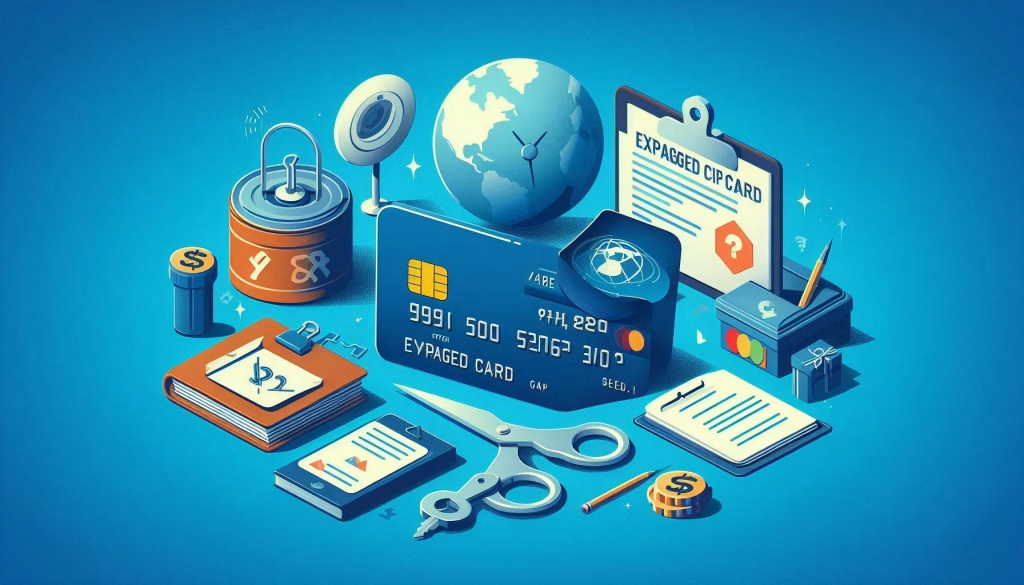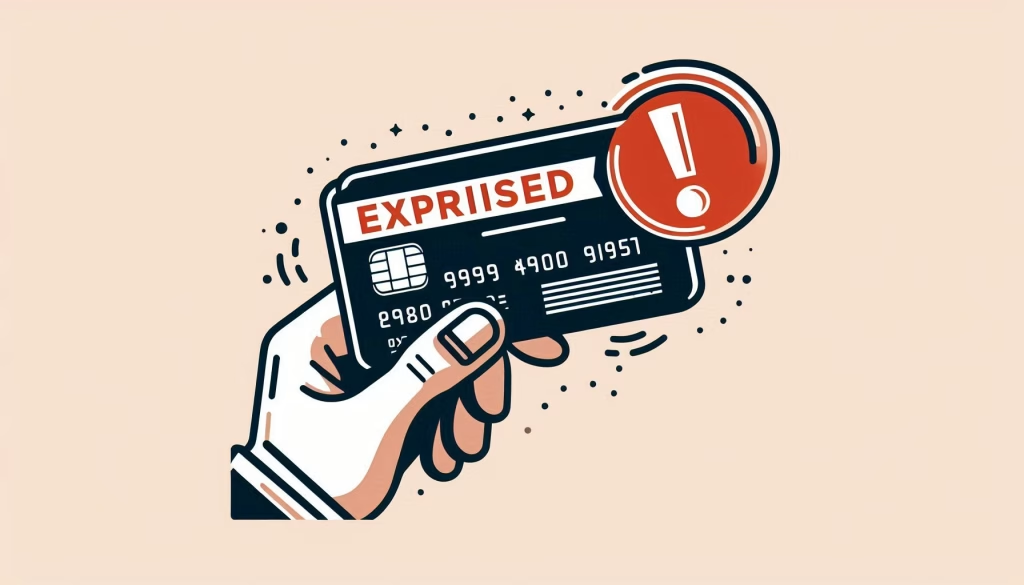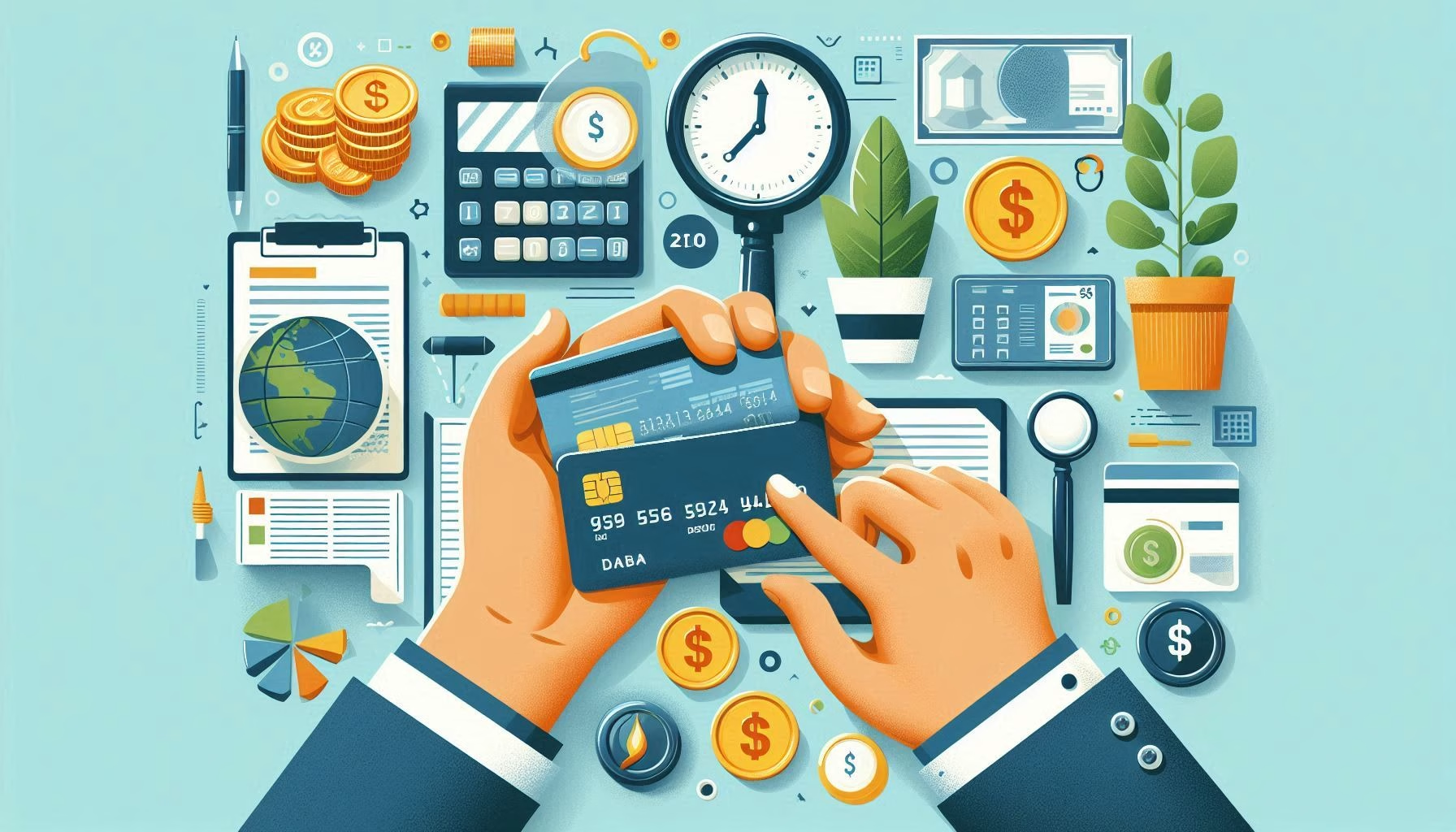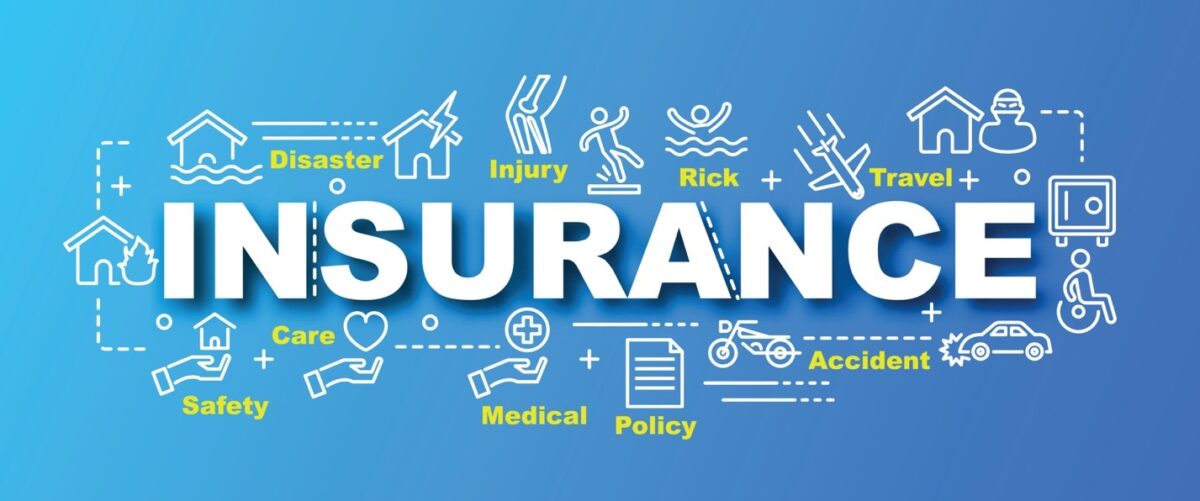Table of Contents
Overview
Today, the majority of people prefer cashless payment methods for their transactions. This preference stems from the system’s ease, speed, and convenience. Commonly utilized non-cash payment systems include credit cards, debit cards, e-wallets, among others.
Encountering an error while using a credit card for shopping or transactions can be quite common. This often occurs for several reasons, such as the credit card having expired.
It’s important to be aware that credit cards have an expiration date that needs to be monitored. Once a credit card reaches its expiry date, it can no longer be used for any payments or transactions. Therefore, there are four crucial steps to take:

Steps to Secure Credit Card Expires No.1
InsuranceWhat.com
New Credit Card Replacement
The first thing that can be done is to replace the credit card with a new one. You just need to go to the bank where the credit card is issued.
Typically, banks will assess if the magnetic strip on an old credit card is still secure or has become obsolete. If the magnetic strip is found to be outdated or excessively worn, it will naturally become challenging to use for transactions.
Without replacement, Electronic Data Capture (EDC) machines may struggle to detect transactions in the future.
Steps to Secure Credit Card Expires No.2
InsuranceWhat.com
Enhancing the Security of Your Credit Card
Once the credit card has been replaced, the subsequent step is to assess and enhance the card’s security. It is advisable to update your credit card password regularly to prevent data breaches.
The expiration period of a credit card serves to enhance the security of customer data and prevent breaches. Upon renewing their credit cards, customers are required to update their personal information.
Should there be additional information requiring updates, it is essential to proceed with these updates. It is important to recognize that updating personal details serves as a means of identification within the bank’s database.
This measure can serve as a proactive step against irresponsible entities. The bank will cross-reference new information with existing data to prevent potential misuse of customer information.
Steps to Secure Credit Card Expires No.3
InsuranceWhat.com
Upgrade Your Card
When replacing an expired credit card at the bank, it’s common for the bank to present their latest products. Have you noticed credit cards with various colors and attractive designs? Banks often use this opportunity to introduce newly launched products to customers.
It’s important to note that upgrading a credit card to a new product often comes with several benefits. Nonetheless, the decision is ultimately yours. Should you choose to upgrade, the bank will proceed with the process.
This is not obligatory. If you find the old card more comfortable, then the bank will only proceed with its replacement. You have the option to select a card that best fits your preferences and comfort.
Steps to Secure Credit Card Expires No.4
InsuranceWhat.com
Comprehending Credit Card Terminology
Understanding the terms and conditions of using a credit card is crucial before you decide to apply for one. When you opt to obtain a new credit card, it often implies that you are agreeing to renew the customer agreement.
Renewing refers to the process of reconfirming consent. As a customer, it is necessary to agree to all the terms and conditions set by the credit card issuing bank before proceeding with the renewal.
If certain provisions are confusing, you can request clarification from the teller or the bank. The most challenging scenario might be an inability to agree to the bank’s terms. In such a case, seeking an alternative solution would be the next step.
Switching to a new bank is one solution. For instance, if you previously used a credit card from Bank A and they introduce new policiesPolicy The policy is a binding agreement and is agreed upon by the insurance company and policyholder in writing. An agreement made by the policyholder with an insurance company. that you find disagreeable and uncomfortable, it may be necessary to seek an alternative and transfer your business to Bank B.
Before proceeding, it is necessary to cancel your credit card application prior to deciding on a bank change. Additionally, you will need to carry several documents when managing an expired credit card, such as your old ATM card, identification card, cash, and passbook.
Ensure that all files are complete and brought along before heading to the bank. If not, the bank may refuse to process the request to prevent data theft or fraud.
When you receive a new credit card, it’s essential to cut up your old one to prevent misuse by others. Given the frequent incidents of credit card fraud, taking this step ensures your financial safety.
Additional Tips for Managing Your Credit Cards
Effective credit card management requires a combination of discipline, knowledge, and strategic planning. By understanding your card’s terms, setting up automatic payments, monitoring your credit utilization, and taking advantage of rewards programs, you can make the most of your credit cards while avoiding common pitfalls. Remember to review your statements regularly, consider balance transfers if needed, and use credit responsibly to maintain a healthy financial future.
Managing credit cards effectively is crucial for maintaining financial health and avoiding debt. While basic tips like paying your bills on time and keeping your balance low are well-known, there are additional strategies that can help you make the most of your credit cards. Here are some advanced tips to consider:
Managing Your Credit Cards No.1
InsuranceWhat.com
Understand Your Credit Card Terms
Before using a credit card, it’s essential to understand its terms and conditions. This includes the interest rate (APR), fees, rewards program, and any penalties for late payments. Knowing these details can help you avoid unexpected charges and make informed decisions about how to use your card.
Managing Your Credit Cards No.2
InsuranceWhat.com
Keep Track of Expiration Dates
Make a note of your credit card expiration dates and set reminders to ensure you’re aware of when your cards are due to expire. This helps you stay proactive and avoid any disruptions in your financial activities.
It’s crucial to keep track of the expiration dates of your credit cards to avoid any disruptions in your financial activities. Regularly check your card’s expiration date and set reminders to renew it before it expires.
Managing Your Credit Cards No.3
InsuranceWhat.com
Use Digital Wallets
To avoid late fees and interest charges, set up automatic payments for at least the minimum amount due each month. This ensures that you never miss a payment, which can negatively impact your credit score. However, it’s still a good idea to review your statements regularly to catch any errors or fraudulent charges.
Consider using digital wallets like Apple Pay, Google Pay, or Samsung Pay. These services store your card information securely and can be updated easily when you receive a new card.
Managing Your Credit Cards No.4
InsuranceWhat.com
Enable Alerts
Most credit card issuers offer alerts and notifications that can help you stay on top of your account. Set up alerts for due dates, payment confirmations, and suspicious activity. These notifications can help you manage your card more effectively and prevent fraud.
Set up alerts with your bank to receive notifications for transactions, due dates, and other important account activities. This helps you stay informed and quickly identify any suspicious activity.
Managing Your Credit Cards No.5
InsuranceWhat.com
Set Up Automatic Payments
To avoid late fees and interest charges, set up automatic payments for at least the minimum amount due each month. This ensures that you never miss a payment, which can negatively impact your credit score. However, it’s still a good idea to review your statements regularly to catch any errors or fraudulent charges.
Managing Your Credit Cards No.6
InsuranceWhat.com
Review Your Statements Regularly
Regularly reviewing your credit card statements is essential for catching errors and unauthorized charges. If you notice any discrepancies, report them to your card issuer immediately. Keeping a close eye on your statements can also help you track your spending and stay within your budget.
Managing Your Credit Cards No.7
InsuranceWhat.com
Limit the Number of Credit Cards You Have
While having multiple credit cards can increase your available credit and potentially improve your credit score, it can also make managing your finances more complicated. Consider limiting the number of cards you have to a manageable amount. This can help you stay organized and avoid missing payments.
Managing Your Credit Cards No.8
InsuranceWhat.com
Use Credit Responsibly
Finally, the most important tip for managing your credit cards is to use them responsibly. Avoid making purchases you can’t afford to pay off in full each month, and don’t rely on credit cards to cover everyday expenses. By using credit wisely, you can build a strong credit history and maintain financial stability.
The Conclusion

Replace your credit card immediately if it has expired
Expired credit cards cannot serve as a payment method. Consequently, it is necessary to request a new card from the bank. There are several crucial steps to address the issue of expired credit cards.
Beginning with the replacement of credit cards, enhancing security, upgrading cards, to understanding the terms and conditions of the selected credit card. The final and crucial step is to cut up the old credit card to prevent any misuse.
Do you think you have other ideas about Expired Credit Card? Follow These Four Steps to Stay Secure? You can comment and share your thoughts below, or discuss more in the InsuranceWhat Forum. Also, read more articles about GLOBAL INSURANCE or other interesting insurance topic articles only at InsuranceWhat.com.





